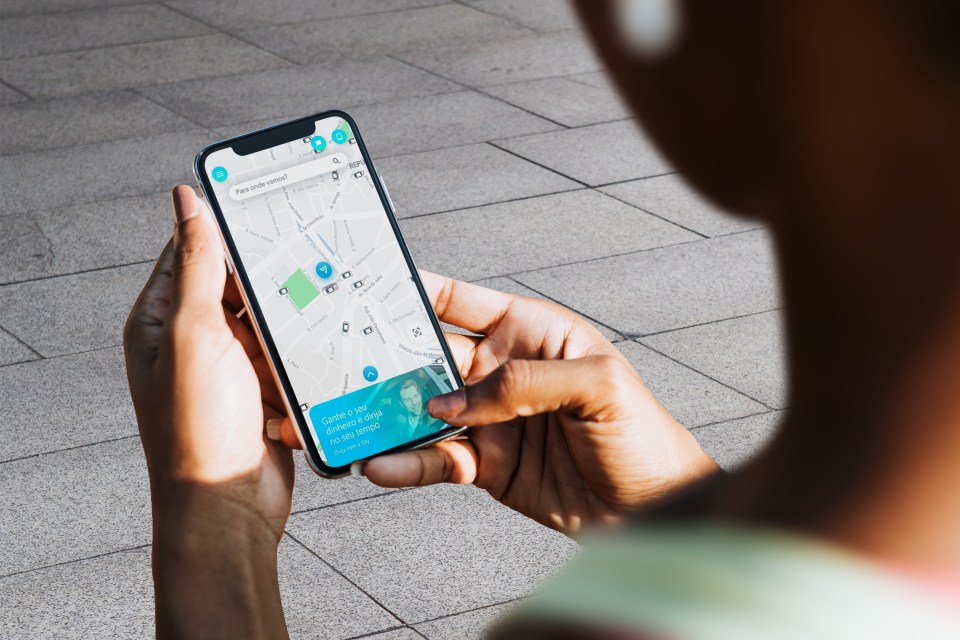RIO DE JANEIRO, BRAZIL – The months have not been easy for shared transport companies. With social isolation reducing the traffic of people in Brazil and the world, companies such as Uber, 99, and Cabify saw a reduction in demand and have been focusing on other fronts – such as product deliveries.

But in contrast to its major rivals, a Brazilian startup hopes to use the pandemic to grow. São Paulo’s Sity, founded in 2017, is expanding its operation to ten more cities. Until now, the company operated only in São Paulo and Rio de Janeiro.
The company now has operations in Porto Alegre and Caxias do Sul, in Rio Grande do Sul, Florianópolis, in Santa Catarina, Cascavel and Curitiba, in Paraná, Vitória, in Espírito Santo, Belo Horizonte, in Minas Gerais, Salvador, in Bahia, Goiânia, in Goiás, and Brasília, in the Federal District.
Sity’s founder, Fernando Ângelo, says that the startup is successfully growing despite the coronavirus. The goal is to grow from the current 12 to 29 cities by the end of the year.
One of the goals is to attract more and more drivers, to create a consolidated base able to serve more customers in the post-pandemic period. A small driver base – which can take time to reply to trips – is one of the factors that drives users away from Apps, says Angelo.
“We want to have an aggressive position, really. So we may secure an adequate response to the demand by the end of the pandemic. It’s a time of crisis but also of consolidation and growth of both drivers and users base”, says the founder.
Sity, since its inception, has focused heavily on drivers: part of its model is to charge them lower rates for trips. The company charges a 10 percent fee per trip, compared to 20 or 30 percent in other Apps. The Brazilian startup has also been offering a R$100 bonus to drivers who refer colleagues to work with the App; payment is only made when the referral has completed 100 trips.
“For us there was a boom in the number of drivers [with the pandemic],” says the founder. According to Sity, there are thousands of drivers on the waiting list to join the App. “We are very well regarded among drivers and this is a great asset for when the pandemic is over. Many are seeking us because, with the decrease in the number of passengers, the amount they earn has also dropped, and we pay better,” Angelo says.
Even before expanding to new cities, the company had reached the mark of 100,000 active passengers and over 20,000 drivers in São Paulo, its largest market. The company expects to reach the end of the year with 80,000 drivers and over two million passengers.
David and Goliath
At the other end, fighting with large international companies is a daunting task, particularly in the midst of the crisis, which has slowed down part of the investments in the mobility sector. The app-based transport segment is still highly focused on discounts and coupons, and a smaller company, such as Sity, may have difficulty attracting clients in this scenario, despite a solid driver base.
Given these challenges, the pandemic is creating additional complications for the industry. Uber, a market leader and the only publicly traded company among the three largest in the sector, announced the dismissal of 25 percent of its workforce and said it would close dozens of offices around the world. Even the Uber Eats delivery operation, which has been doing better during the crisis, was closed in seven countries, including Uruguay.
Sity has so far remained without investor contributions, with only its partners investing and its own cash flow. Ângelo says that he is negotiating with investors but that profitability is the company’s focus, which, according to him, can be achieved with a “lean” operation. The company does not disclose its turnover. “Our cash flow is now positive. We want to become a model company and reference for funds,” he says.
Despite the expansion, Sity has also redrafted plans for 2020, reducing the growth projection and deferring marketing campaigns that it had planned for the new cities in which it debuted. The startup today has 60 employees, most of them at its headquarters, on Faria Lima Avenue in São Paulo, and is hiring. The projection is to reach the end of the year with between 120 and 180 employees.
Now 31 years old, Angelo came to the city of São Paulo at 18 from Ourinhos, in the interior of the state. He always says he had the dream of becoming an entrepreneur. Since then, between waiter and street vendor jobs, he even owned a carrier before founding Sity in early 2017.
The entrepreneur says that, despite the high competition, he founded Sity after realizing, in conversations with App drivers, a deficiency among these professionals for better service from the apps – which he hopes to use as a differential for the future.
The pandemic has not discouraged Angelo about the startup’s prospects. “We know it’s a difficult market with tight margins. We want to proceed slowly but always consolidating what we have built and with financial responsibility. We know it takes a while,” he says.
Source: Exame

